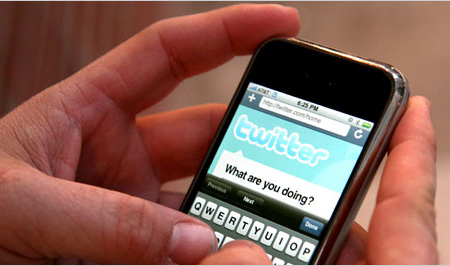Tweeting can help you lose weight— study
Share

![]()
A study conducted by researchers at the University of South Carolina, United States has revealed that the support and accountability provided by posting tweets on Twitter can make a difference in how much weight people lost.
The research was carried out using two groups ; one that tweeted and one that didn’t. The researchers discovered that members of the two groups lost weight during the trial, however individuals within the Twitter group who posted the most lost the most weight.
Both groups received podcasts containing information on nutrition and exercise, but one group tracked their progress in a book, while another used a smartphone app and Twitter. When Brie Turner-McGrievy and her colleagues at USC’s Arnold School of Public Health took a closer look at the results, they found those actively tweeting and retweeting lost more weight.
“The more they were posting to Twitter, the better off they did,” Turner-McGrievy said. In analyzing the frequency and types of posts, her team found that every 10 tweets corresponded with about 0.5 percent weight loss.
In the study, published this week in Translational Behavioral Medicine, researchers recognize that most examinations of remote social support during weight-loss programs have focused on message boards and some have looked at how social networking sites might foster support. What sets this study apart, Turner-McGrievy said, was its closer look at the type of social support people were providing, how often they were using Twitter, and whether it seemed to be related to success with weight loss.
Seventy-five percent of the 2,630 tweets in the study were classified as “informational,” with most characterised as status updates providing new facts or skills. (“I avoided eating a pastry this morning at a breakfast meeting! I did have a skim Mocha without whipped cream … not too bad!”)
Turner-McGrievy said the anonymity provided by Twitter, where you can post as @POD45 rather than using your real name, as you do with Facebook, was a positive aspect for the participants.
“No one wants to talk about their weight online. One of the things we asked people to do was post how many pounds they lost on Friday of every week,” she said. “Some people still didn’t want to post how many pounds they had lost, even with the anonymous Twitter account. That’s very sensitive.”
After getting an initial look at how people reacted to using Twitter during a weight-loss study, the research team is looking at how best to tailor high-tech and low-tech feedback to each participant.
“We don’t have to do this one-size-fits-all,” Turner-McGrievy said. “How can we predict who would be good to be in a Twitter group, or a Facebook group, or a texting-only group, or a leave-me-alone group? What do we know at the beginning where we can give people the type of intervention that they need?”





